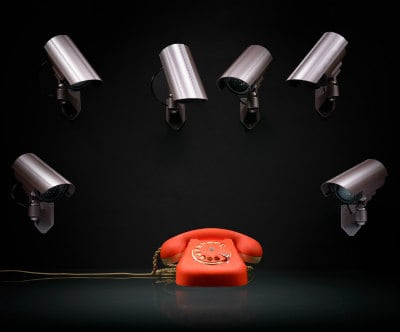 Parties facing a divorce or other family law litigation in Virginia often ask the question: would it help their case to record telephone conversations with the opposing party? The answer to this question may surprise you.
Parties facing a divorce or other family law litigation in Virginia often ask the question: would it help their case to record telephone conversations with the opposing party? The answer to this question may surprise you.
The Virginia Code sets out a surprising barrier for the use of recorded telephone conversations. Virginia Code Section 8.01-420.2 sets a general bar to the admissibility of recorded phone calls in civil court proceedings, unless all parties are aware that the conversation is being recorded. Unlike voicemails and recorded physical interactions, a telephone conversation would provide the opportunity to record without all parties’ awareness that the recording was being made. In a voicemail, the party intends that the message will be recorded, and pulling out your phone and placing it on the table is a tipoff that you may be recording an in-person interaction.
For telephone conversations, however, Section 8.01-420.2 clearly provides that absent everyone’s knowledge that the call is being recorded, the recording is entirely inadmissible. But the statute provides a way around this: a declaration at the beginning of the recording clearly stating that the conversation is being recorded permits its admission into evidence. This would be akin to calling your credit card company and hearing that familiar announcement stating “this call may be recorded for training purposes.” In reality, where the parties may already not be getting along, one would suspect that this would result in a hang up shortly thereafter.
The statute does provide a very limited exception to the need for awareness of the recording by both parties, where: (1) one party is aware of the recording; (2) the recording contains statements that if true would constitute criminal conduct; (3) that criminal conduct is the basis for the pending civil case; and (4) the civil suit is not for divorce, separate maintenance, or annulment of a marriage. In these limited circumstances, a recorded telephone conversation can be admissible in court even if one party was not award the call was being recorded.
For example, let’s say that Wife records a telephone conversation with her Husband without his knowledge, in which he admits to engaging in an adulterous affair with a co-worker. Wife then files for divorce on the ground of adultery.
In addition to being a ground for divorce, adultery is also a crime in Virginia (much to the dismay of many family law attorneys). So, does Wife’s recording meet the requirements for our exception? Let’s check:
- one party (Wife) knew the conversation was being recorded;
- the recording contains statements that if true would constitute criminal conduct (Husband’s adultery);
- that criminal conduct is the basis for the pending civil case; however,
- that civil case is for divorce, so the recording is inadmissible.
So when can these types of recordings be used? Let’s change the facts in our hypothetical to make it a pending protective order case between Husband and Wife, instead of a pending divorce. Although there is some overlap between civil protective orders and criminal charges in Virginia, for this scenario you just need to know that the protective order is a civil action.
So, let’s say that Wife records a telephone conversation with Husband without his knowledge, in which he threatens to kill her. Fearing for her life, Wife seeks a protective order against Husband based on his threat. In this situation, will the recorded conversation be admissible in court? Again, let’s check:
- one party (Wife) was aware of the recording;
- Husband’s threat to kill Wife would constitute criminal conduct in Virginia;
- that criminal conduct is the basis for the pending civil case (the protective order); and
- that civil case is not for divorce, separate maintenance, or annulment.
So, Wife could indeed use the recorded telephone conversation containing Husband’s threat to kill her in the protective order case.
If you are considering recording a telephone conversation for use in your family law case, be sure to first consult with an attorney. An experienced family law attorney can help you understanding whether a recorded phone call will be admissible evidence in your particular case. Livesay & Myers, P.C. has a team of experienced family lawyers across offices in Fairfax, Arlington, Ashburn, Manassas, and Fredericksburg, representing clients across Northern Virginia. Contact us to schedule a consultation today.
